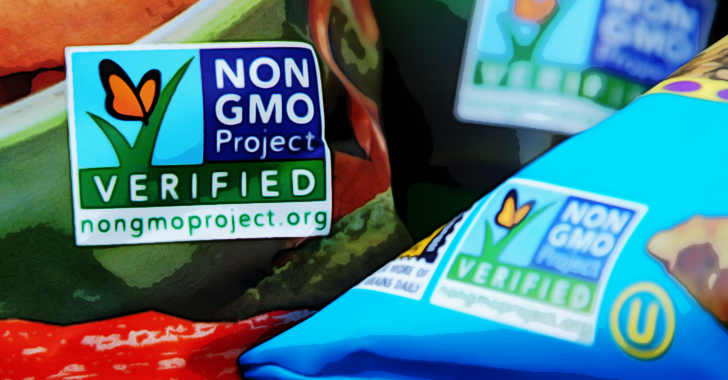Senate Holds Hearing on GMO Labeling, but Only Hears One Side of the Debate
Several speakers at a recent Senate hearing on labeling foods that contain Genetically Modified Organisms (GMOs) are connected to or have shown support for the Big Agriculture industry.
The hearing, titled Agriculture Biotechnology: A Look at Federal Regulation and Stakeholder Perspectives, comes in response to a bill passed by the U.S. House of Representatives in July. That bill would create a federal voluntary standard for GMO labeling and block mandatory labeling efforts by states. Known as the Safe and Accurate Food Labeling Act to supporters and the DARK (Deny Americans the Right to Know) Act by critics, the law would effectively nullify GMO labeling measures like the bill recently passed in Vermont. The Vermont law is scheduled to go into effect July 2016. Maine and Connecticut have also passed laws requiring labeling, but those measures will not go into effect until bordering states also pass legislation.
Widget not in any sidebars
The U.S. Senate Committee on Agriculture Nutrition & Forestry heard testimonies from several speakers representing farmers, the GMO lobby, and consumer groups. Officials from the U.S. Department of Agriculture, the Food and Drug Administration, and the Environmental Protection Agency also testified. The hearing was a balanced look at the issues surrounding GMOs and biotechnology in general — at least, that’s what the Senate would have you believe.
As Reuters reported, “the Consumers Union and five other consumer organizations sent a letter to the Senate committee complaining that the lineup of speakers was not balanced and did not include a consumer representative.” Jean Halloran, Director of Food Policy Initiatives for Consumers Union said, “Time and again, a large majority of consumers have expressed strong support for GMO labeling.”
Ronnie Cummins, international director for the Organic Consumers Association (OCA) and a speaker at the hearing, released a scathing review of the events. “Today’s hearing on H.R. 1599 made a total mockery of democracy. Of the eight witnesses allowed to testify, only one could be remotely considered as someone who represents the interests of consumers and public health,” Cummins said. “The other seven have ties to the biotech and corporate food industries, and were there to represent the interests of corporations, not people.”
The list of industry witnesses includes representatives from the American Soybean Association, National Corn Growers Association, and Food and Agriculture for the Biotechnology Industry Organization (BIO) — all organizations that directly benefit from GMO technology. Perhaps unsurprisingly, a majority of the witnesses came out in support of giving the federal government more power and taking away influence from states and local governments.
The American Soybean Association called on senators to “come to the table and finalize a plan to establish a voluntary national framework for the  labeling of foods containing GMOs,” while Brian Baenig, Executive Vice President for BIO, expressed support for the bill. “In particular, we echo Ranking Member Stabenow’s request for a solution that addresses the problem of a 50-state patchwork of regulations, while providing transparency for consumers in a way that does not stigmatize biotechnology,” he said.
labeling of foods containing GMOs,” while Brian Baenig, Executive Vice President for BIO, expressed support for the bill. “In particular, we echo Ranking Member Stabenow’s request for a solution that addresses the problem of a 50-state patchwork of regulations, while providing transparency for consumers in a way that does not stigmatize biotechnology,” he said.
While these statements are meant to sound empathetic to the consumer, they are actually deceptive propaganda from individuals representing institutions that will directly benefit from the passage of the DARK Act. The Organic Consumers Association compiled a list of the witnesses’ connections to the biotech industry.
Pro-GMO website Grist did its best to portray the hearing as balanced and focused on the science behind GMOs. As Grist wrote, “Of course this was the agriculture committee — and I’d expect some pro-GMO sentiments from Democrats with big constituencies of farmers. But I was also expecting to see some senators from more liberal states channelling anti-GMO concerns as well. Instead, I heard strong pro-GMO statements, and no senator planted a flag on anti-GMO ground.”
Indeed, no senator was willing to challenge the obvious bias of the hearing. At one point, Heidi Heitkamp, a Democrat from North Dakota, asked William Jordan of the EPA’s Office of Pesticide Programs to elaborate on how the agency worked to provide accurate information to the public regarding the safety of GMO crops. Jordan basically said people distrust the government, making it difficult to get the public to accept pro-GMO research.
“I believe the science is so strong in this area — that these are products that will not have an adverse effect in any way on health, in fact can improve health by making food more available worldwide. And yet we seem to be losing the fight, not just on labeling but on how we are going to make these products more accessible,” Heitkamp responded.
Grist also reported that Joanna Lidback, a dairy farmer from Vermont, spoke in favor of GMOs, stating the technology allows farmers to be “responsible stewards of their land.” It is unclear exactly how supporting a technology that requires abundant use of harmful herbicides and pesticides is “responsible.”
The hearing is su re to create further controversy around the growing use of genetically modified foods and the corporatism between companies like Monsanto and the U.S. government. In fact, the USDA approved a new version of Monsanto’s GMO corn only days ago.
re to create further controversy around the growing use of genetically modified foods and the corporatism between companies like Monsanto and the U.S. government. In fact, the USDA approved a new version of Monsanto’s GMO corn only days ago.
Wherever you stand on the issue of GMOs, we should all recognize that each individual deserves to know what they are eating. The DARK Act will only make it more difficult for states and localities to find remedies that work for their specific environments and needs. The bill will also push the U.S. one step closer to full on corporatocracy. But what are the solutions for fighting the corporatocracy? The Organic Consumers Association offers this message:
Today, we call on millions of American consumers to contact their elected officials with this message: If you vote against states’ rights, if you vote against truth and transparency in labeling, if you vote against the more than 90 percent of Americans who want mandatory, not voluntary, labeling of GMO foods, we will vote against you.
If you are not one for voting, try getting involved with a local community farm, urban farm, farmers market, or backyard garden. Get your hands in the soil, take control of your diet, and seize power back from the biotech giants. And remember: Resistance is Fertile.
Video of the hearing is available here.
This article (Senate Holds Hearing on GMO Labeling, but Only Hears One Side of the Debate) is free and open source. You have permission to republish this article under a Creative Commons license with attribution to Derrick Broze and theAntiMedia.org. Anti-Media Radio airs weeknights at 11pm Eastern/8pm Pacific. If you spot a typo, email [email protected].



